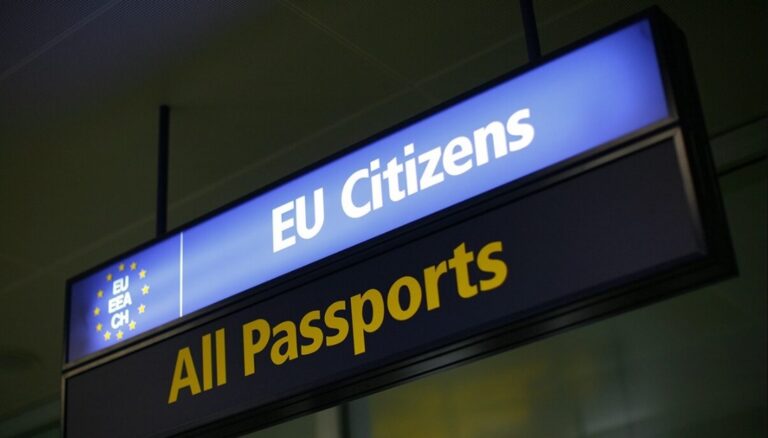
Schengen, another failure: EU Justice and Home Affairs Ministers meeting in Brussels did not approve the admission of Bulgaria and Romania to the free movement area / Bulgarian Interior Minister: The two countries are still treated as a package deal
As expected, EU justice and home affairs ministers (JHA Council), meeting today in Brussels, did not give the green light for Bulgaria and Romania to join the „Schengen area”.
First to announce the new setback was Bulgarian interior minister Kalin Stoianov, who said the two countries were still being treated „as a package deal”, especially in the face of opposition from Austria and the Netherlands. But Kalin Stoianov, newly appointed interior minister, said he was „optimistic” and said he had been in contact with Cătălin Predoiu about a common strategy.
- UPDATE 20.30 MEP Eugen Tomac told G4Media.ro that in the JHA Council on Tuesday, practically no decision was taken, there was no vote, although the issue of the two countries joining Schengen was on the agenda, so as not to risk legal action by Romania. PM Ciolacu.
Indeed, it was revealed behind the scenes that some officials were irritated that Bulgaria and Romania’s request was on the agenda, especially as one of the main opponents of Romania’s Schengen membership, the Netherlands, still does not have a functioning government after Geert Wilder’s far-right party won the most seats in the last parliamentary elections.
The European Parliament had already demanded in December 2018 that Romania and Bulgaria be co-opted into the Schengen area, followed by the European Commission in November 2022. Of course, not everyone in the Parliament agrees, and the EU Commission only made a recommendation, the Commission being in reality the executive of the Union. The final decision is therefore not the Commission’s, and the EU Parliament has also only made a recommendation.
The final decision rests with the capitals of the Schengen countries, which include 22 EU countries as well as Norway, Switzerland, Iceland and Liechtenstein.
The promises go back a long way. Also in December 2018, at the same time as the European Parliament’s recommendation, then EU Commission President Jean-Claude Juncker made the same promise to Viorica Dăncilă, head of the Romanian government at the time.
Apart from Austria, the main opponent of Romania’s acceptance remains the Netherlands. Already in November 2022, the Dutch parliament passed a resolution calling on the government of Prime Minister Mark Rutte to veto the Schengen admission of Bulgaria and Romania until further checks were carried out – highlighting the continued prevalence of corruption and organized crime in the two countries.
Schengen is about cooperation between the judiciary
For EU member countries such as Romania and Bulgaria, Schengen is only indirectly related to the free movement of people, or the right to work in other EU countries. Romania in Schengen or not changes nothing in the fact that Romanians can travel, settle or work freely in all EU countries.
Of course, there are still delays in transporting goods at borders, but one of the main advantages of being in Schengen has to do with cooperation between courts, because if Romania is not in Schengen, then court decisions from one country to another are not automatically respected.
Schengen accession is an obligation
Then there is the often overlooked fact that joining Schengen is not really some kind of reward. The reality is exactly the opposite: joining the Schengen area (as well as the Euro) is an obligation for EU Member States, not a reward for good behaviour. The EU treaties say that all member countries (except Ireland) are obliged to join Schengen „once they fulfil the conditions”; and all (except Denmark) are obliged to switch to the euro „as soon as economic conditions allow”.
So this is not a right not granted to Romania so far, but an obligation that Austria and the Netherlands believe Romania cannot yet fulfil in the present situation. On the other hand, all the official reports of the European Commission and the resolutions voted in the European Parliament show that Romania is ready to join the Schengen area.
Apart from the benefits for the economy in general, the main advantage for ordinary citizens would be that they would no longer have to wait in queues at the airport and carriers would no longer have to spend days at the border with Hungary or Bulgaria, delays which are reflected in higher costs for exported goods. Instead, Romania’s external borders will become Schengen borders, including the one with the Republic of Moldova.
Urmărește mai jos producțiile video ale G4Media:

Donează lunar pentru susținerea proiectului G4Media
Donează suma dorită pentru susținerea proiectului G4Media
CONT LEI: RO89RZBR0000060019874867
Deschis la Raiffeisen Bank